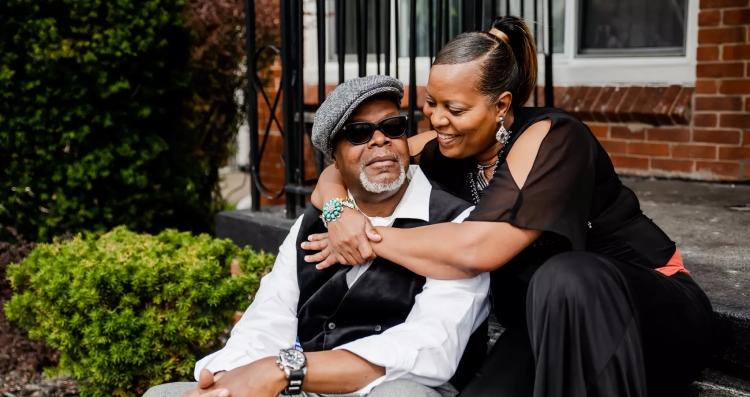A Practical Guide for Caregivers on How to Support a Loved One Affected by Prostate Cancer
You are never really ready to care for someone who has prostate cancer. Taking on the job of caretaker, whether you are a lifetime friend, sibling, partner, or kid, might feel like balancing hope and grief while attempting to recall the day.

The purpose of this handbook is to walk with you. Not only with the pragmatic things, like prescription drugs, appointments, and cozy socks, but also with the emotional burden that is sometimes disregarded: knowing what to say, knowing what not to say, and knowing how to be there without completely unraveling.
Receiving a Life-Changing Prognosis
The world turns upside down when a loved one learns they have prostate cancer. What follows is a very personal story, according to Dr. Marc Garnick, professor at Harvard Medical School and principal editor of the Harvard Medical School Guide to Prostate Diseases. According to him, "patients with advanced cancer are facing their own mortality." "And they all handle that differently."
As a caretaker, you could experience pressure to be the strong one, to remain upbeat and cheerful, to fix every problem. However, genuine support frequently appears more subdued than that. It begins with attentive, goal-free listening. Pep words and sunlight are not for everyone. Some people simply want a place to cry, vent, and ask themselves, "Why me?" without feeling pressured to find optimism.
The Influence of Careful Words
Being unsure of what to say is one of the most difficult aspects of being a caregiver. The truth is that there is not a single catchphrase that solves all problems.
Do not minimize the experience of your loved one. Even well-meaning statements like "Let us not think about it right now" or "You are lucky it is only stage 2" can come out as condescending. Rather, embrace kindness and curiosity. "What do you need today?" or "Tell me what would genuinely help right now?" are two straightforward and sincere questions to try.
Additionally, avoid feeling the need to "correct" every negative mood. A rollercoaster of hormonal and mental changes, including numbness, anger, and melancholy, can accompany treatment. Allow your loved one to experience their emotions. If you can not get them out of it, you are not failing; rather, you are achieving by remaining in the moment.
Daily Assistance: The Silent Work of Love
Cancer care logistics can be overwhelming. Schedules, side effects, and interactions are common with medications. A weekly pill organizer—yes, the traditional one from the drugstore—can be quite helpful. Put reminders in place. Put things in writing. Wherever possible, establish order.
Temperature fluctuations, ranging from hot flashes to bone-deep cold, are common side effects of hormonal treatments and chemotherapy. Have warm socks, plush beanies, and comfy blankets on hand. Sometimes warmth—literal warmth—is the first step toward comfort.
Make a journal for everyone's health. It does not need to be elaborate. A shared Google Doc or a basic notebook can be a lifesaver. Maintain a record of your prescriptions, doctor contacts, appointment questions, and treatment progress notes. You may even find yourself writing down ideas or reflections, which is a hybrid of a diary and a health log. It has the potential to be restorative and grounding.
You will probably also take on the role of calendar keeper, managing insurance, making appointments, and completing paperwork.
You can prevent unforeseen expenses and treatment delays by being aware of your loved one's Medicare or private insurance coverage.
Taking Care of You: The Part No One Discusses
It is exhausting, which is the difficult thing that most caretakers will not openly admit. and isolated. At times, you may feel as though you are fading into the position you have assumed.
However, your health is just as important as that of your loved ones. Truly. Giving care is a marathon, not a sprint, and you can not pour from an empty cup. Thus, make room for yourself:
Get as much sleep as you can.
Consume nourishing meals, even if they are only easy preparations.
Even if it is only a quick stroll around the neighborhood, get your body moving.
Even if it is just for coffee or a brief phone conversation, make connections with people outside of the cancer cocoon.
Additionally, you are not alone if you are experiencing loneliness, depression, or burnout. Think about talking to a therapist or attending a support group for caregivers. You too deserve care, and the emotional toll is real.
In conclusion, you are doing better than you realize.
Being a caregiver is not an ideal job. There is simply turning up time and time again with love, tolerance, and an openness to learning new things. There will be days that are full of grace. Others will be untidy, annoying, or simply difficult.
But in the quiet times, whether you are sitting in silence, laughing about something trivial, or holding hands during chemotherapy, you are providing something that no therapy can replace: love, loyalty, and presence.
And that? That is all.
What's Your Reaction?




















